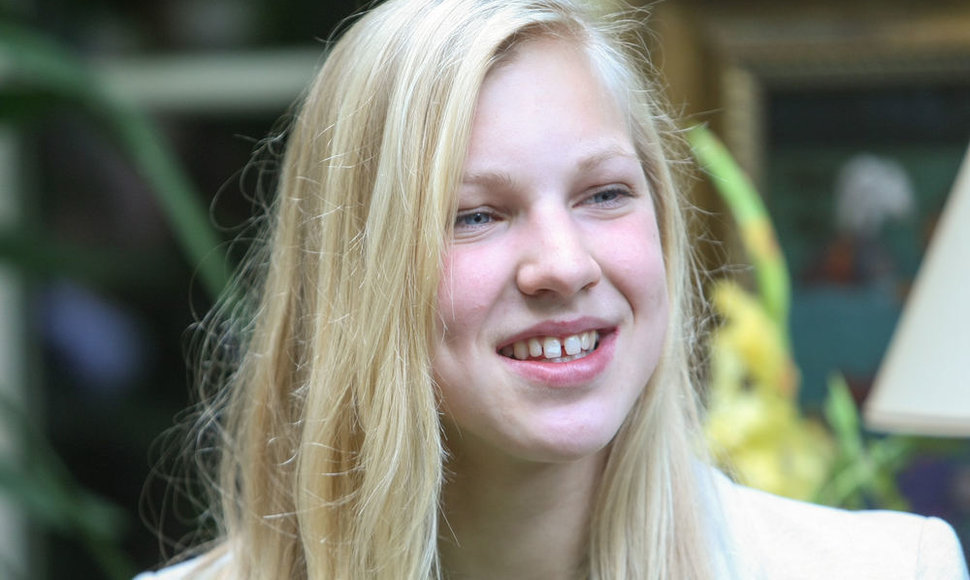"As the Daily Mail put it after her Olympic triumph, "Plymouth girl wins swimming gold … but it's for Lithuania." It was an all-too-rare positive headline about the UK's Lithuanian community, which in the past eight years has only really made the news when one of its number committed a terrible crime or when they have been exploited by ruthless gang masters," the Guardian's Helen Pidd summarizes the good publicity lent by Meilutytė's triumph to the swelling Lithuanian community in the UK.
"Around 100,000 Lithuanians now officially live in England and Wales," the publication quotes recent cencus data. "And some think the true number could be double that."
The impressive numbers make it all the more strange, according to the Guardian, why the Lithuanian residents of Britain have been subsumed under the general category of "Poles" which stands, in the minds of native Britons, for all newcomers from “new” EU countries.
"While the Polish incomers were accused of everything from driving down plumbers' salaries to poaching carp for their Christmas dinners, the increase in Lithuanians has gone largely unnoticed. It was something of a surprise, then, when the latest census figures released last week showed that alongside 579,083 Poles, there are now 97,083 Lithuanians living in England and Wales – an increase of almost 93,000 on 2001 levels (figures for Scotland and Northern Ireland will be out later this year). It is an astonishing number from a country with a population of just 3.3 million (Poland's population is 38 million).
"The statistics are all the more remarkable when you consider many are adamant the true figure is much higher – before the census figures came out, the Lithuanian embassy told the Guardian they believed as many as 200,000 Lithuanians could be living in Britain right now."
While the Lithuanian community is becoming increasingly visible in Britain's cities and towns, the surest way to meet them is to go to the nearest basketball court, according to the Guardian.
"If Britain's French community is based around the Lycée Français school in South Kensington, then the Lithuanian community hub is arguably the Sydney Russell Leisure Centre in Dagenham. This somewhat depressing sports centre in the far reaches of east London is home to the British Lithuanian Basketball League, which now should really be in the plural as it has now grown to encompass two leagues – seven teams play in the 1st, a further 12 in the 2nd. Over 500 people are members."
The originator of the league, Kęstutis Dobrovolskis from Kaunas, says the idea was to bring Lithuanians together and keep them away from some of the less innoccent "pastime activities", including crime: "I'm trying to stop them from drinking and taking drugs in their spare time. They can come here two nights a week and make friends. It keeps them busy. Maybe they don't know anyone at all in the UK but as soon as they join here, they have 500 new friends straight away."
Not all Lithuanians who come to Britain are fleeing unemployment and hardship at home, the Guardian is told by Raminta Dereškevičiūtė, head of the networking and social society the Lithuanian City of London Club.
"Perhaps some people think all Lithuanians come here as economic migrants, but I'm not an economic migrant. I've not fled home. I want an international life, and London is a major financial centre," she insists.
With her excellent education and a well-paid job, Dereškevičiūtė has no trouble in making London a comfortable home, yet it is not universally true of all Lithuanians in the UK, some of whom do feel alienated from the British society. "I think Lithuanians are fed up with not feeling part of the UK community. Sometimes it seems that you are only accepted as an asset [rather than a drain] if you pay 50% tax, have a good job and can afford to send your kids to private school," she believes.
At the end of the publication, the Guardian presents a list of shorthand rules for Britons who wish to make friends with their Lithuanian neighbours. The absolute don'ts include confusing them with Poles, assuming they are Slavs or share Russians' liking for vodka (in fact, they prefer beer).












